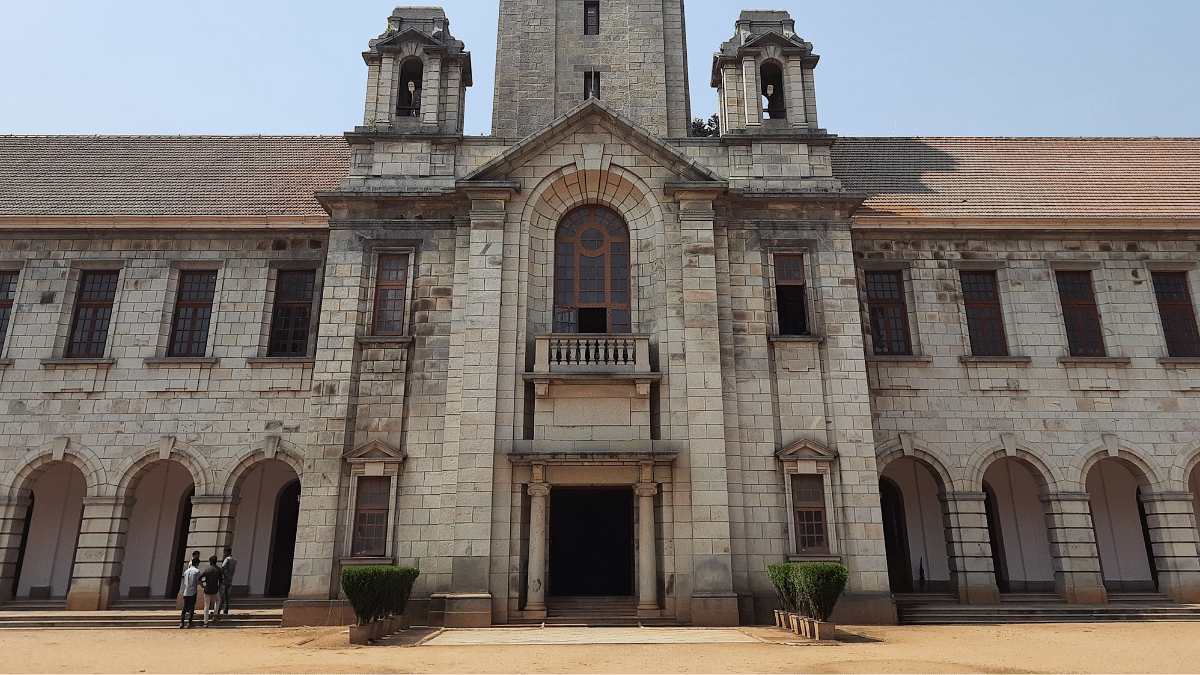New Delhi: In a letter to the director of the Indian Institute of Science (IISc), Bengaluru, over 500 academics have expressed their unhappiness over the institute’s decision to cancel a discussion on the Unlawful Activities Prevention Act (UAPA), prisons and the criminal justice system, which was to be led by activists Natasha Narwal and Devangana Kalita.
Kalita and Narwal, who participated in the movement against the Citizenship Amendment Act and are facing terror charges for their alleged involvement in the 2020 Northeast Delhi riots case, are currently out on bail. Both were booked by the Delhi Police under UAPA.
The letter, seen by ThePrint, has been signed by academics across national and international institutions including Professor Rahul Varman, IIT-K, Vaibhav Vaish from IISer Mohali, Ananyo Maitra from CNRS and CY Cergy Paris University and Ayesha Kidwai from JNU, among others. Sent to IISc director Prof. Govindan Rangarajan Monday, it reads: “We believe that it is important for members of IISc to hear about Natasha and Devangana’s experience and to reflect on the laws that were used to incarcerate them. Regardless of one’s perspective, such discussions are crucial in a functioning democracy and IISc, as an academic institution, is ideally positioned to host them.”
It further says: “Conversely, if the institute is unwilling to permit peaceful discussions on constitutional questions, it is hard to see how it can foster a spirit of critical inquiry that is necessary for scientific work.”
IISc students and professors ThePrint spoke to said that the event was initially planned for 28 June as a talk at the Centre for Continuing Education (CCE) on campus, and had been approved by the CCE chair. However, a day before the event, IISc registrar Sridhar Warrier sent an email to the organisers stating that they “required prior administrative approval which has not been sought”, and that the discussion “was not proposed by the student’s representative body”.
Suvrat Raju, a professor at the International Centre for Theoretical Sciences, of the Tata Institute for Foundational Research Bengaluru, told ThePrint that the discussion was part of a series of three lectures organised by students at the ICTS and IISc. “The talks at ICTS took place as scheduled. However, a day before the event at IISc, the registrar cancelled permission that the organisers had previously received.”
“In order to comply with the registrar’s order, the students replaced the talk with an informal interaction outside the Sarvam Complex. However, the administration dispatched security guards to disperse even this informal gathering. The presence of IISc faculty members discouraged the security from taking further action. However, many of us present found these actions appalling,” added Raju.
ThePrint reached the IISc over mail seeking comment on the issue. The copy will be updated when a response is received.
Also Read: IISc, India’s lone science gem that keeps topping global rankings, leaving IITs, IIMs behind
‘Reflects poorly…’
The professors, in their letter to the IISc director, wrote that the actions of the administration “reflect poorly on its commitment to upholding academic freedom and democratic values”, and have damaged the reputation of the institution.
“Your actions have damaged IISc’s reputation, both within the country and internationally. We hope that you will take urgent corrective measures and ensure that members of IISc remain free to express and discuss a range of ideas, both about science, and about the society that we live in,” said the letter.
In support of Narwal and Kalita, the letter further said: “…while releasing them on bail, the Delhi High court noted that ‘in its anxiety to suppress dissent … the State has blurred the line between the constitutionally guaranteed right to protest and terrorist activity’. If such blurring gains traction, democracy would be in peril.”
In May, the Supreme Court had dismissed the Delhi Police’s appeal against the activists’ release on bail.
(Edited by Gitanjali Das)
Also Read: How the Supreme Court UAPA verdict leaves loopholes for agencies to exploit

